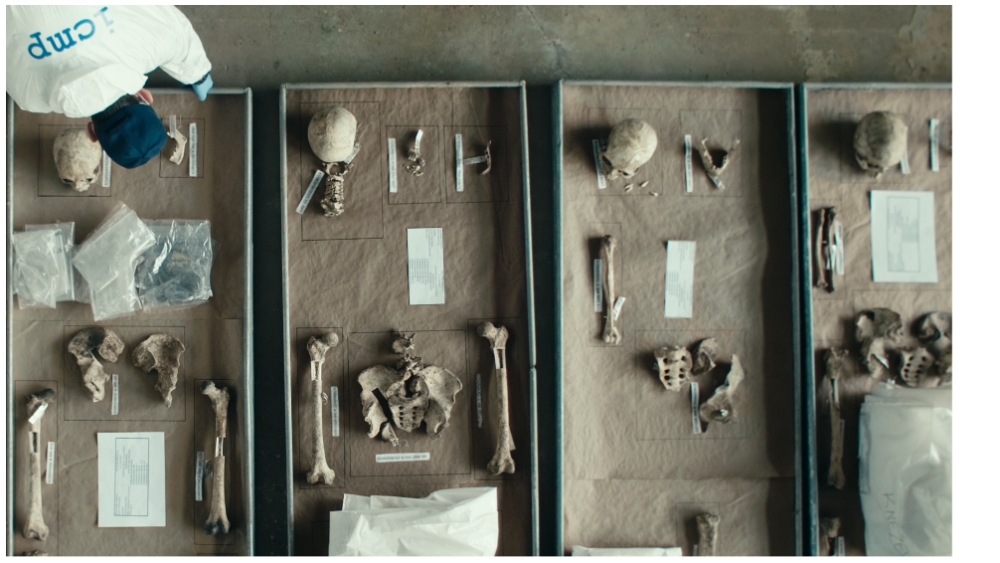
In Jan Baumgartner’s first feature, “The DNA of Dignity,” which plays in the Newcomers Competition at the Thessaloniki Intl. Documentary Festival, the Swiss nurse-turned-filmmaker follows a team of forensic scientists who, in the anonymity of mass graves, are looking for the last usable traces of human DNA in the hope of giving the victims their names and dignity back decades after the Balkans War, which resulted in the disappearance of thousands of people. Survivors and those left behind pin their hopes on excavations and scientific work.
“Time is running out. Many people in the Balkans are still missing their loved ones. I really wanted to make this film so that people start talking about this topic and maybe have a conversation with their families and ask their fathers if they know if there’s still somewhere where people could be because it’s very hard to find those victims now.”
There are still 11,000 people missing in the Balkan region. A way to find them more swiftly is if the perpetrators and/or witnesses talked. “They don’t have to go to the police. They can do that anonymously. And, they could end up with some peace for themselves, but also for all those people looking for their missing ones.”
He adds: “We didn’t raise the question of guilt. We didn’t mention any crime scene. We didn’t talk about perpetrators because we wanted to avoid that topic. If you point a finger at them and say: ‘You’re the guilty one,’ they will shut up immediately because they don’t want to be the guilty ones all the time.”
With the pic’s title, Baumgartner hopes to show that the bones are not merely connected with something “bad or horrific.” “We wanted a title that shows that even those bones have a certain beauty and that they can be connected with some hope, and not just with something bad.”
Baumgartner, who accompanied Ramiz Nukić, one of the film’s protagonists, on an hours-long walk in the forest to find human remains, admits having trouble with nature being “an accomplice of oblivion,” and reconciling its beauty and grandeur with the terrible secrets it is hiding, “Many people didn’t go there for years because there are still landmines there. And, there is such beauty there but, on the other hand, there is so much pain in those woods, in those forests and rivers where people disappeared. In all different kinds of places, and mostly covered up by nature. Imagine if you wanted to make someone disappear, and then even if someone came up to you and said: ‘Hey! I saw something there 20 years ago,’ it’s almost impossible to find the right spot because nature is changing constantly.”
Anthropology, archaeology and forensic science acquire a whole new dimension with this film, especially in connection to the ICMP (International Commission on Missing Persons), “They’re young – between 35 and 45. Mostly women. The interesting part of it is that those people read the bones – Was it a child? Was it an adult? Was it someone who got injured before? They work with those super small fragments sometimes and it’s like a huge puzzle, and they try to put it together to finally find an identity. The forensic archaeologists are the ones who are in charge of the mass graves. They know how to bury the people. The forensic anthropologists are the ones who read the bones. They have to use the DNA lab to clarify who the victim was and then they compare the blood reference samples with those from the people left alive.”
Baumgartner says he learned about the consequences of the war for the younger generations. “Just because of that, people from the Balkans have less chances of finding a job. It’s hard for them if they want to travel. They struggle with all the postwar things their family experienced; it’s such a big burden for a lot of people.”
The question of society’s guilt in times of war is a subject Baumgartner would like to tackle in a future project.
Baumgartner is the producer on the film, with postproduction supported by various Swiss foundations.













